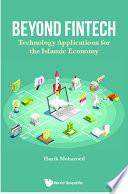
Moderasi Islam Dan Kebebasan Beragama Perspektif Mohamed Yatim & Thaha Jabir Al-Alwani
Buku ini adalah hasil terjemahan karya dua tokoh yang berbeda, yakni karya Prof. Mohamed Yatim yang berjudul al-Wasathiyyah wa al-I’tidȃl: Min Ajli Istirȃjiyyah Listȋ’ȃb Fikrat al-Ghuluw wa al-Tatharruf (Beirut: al-Intisyȃr al-‘Arabȋ, 2011), dan karya Prof. Thaha Jabir al-Alwani yang berjudul Lȃ Ikrȃha fi al-Dȋn: Isykȃliyyat al-Riddah wa al-Murtaddȋn min Shadr alIslȃm Hattȃ al-Yaum (Kairo: Maktabah al-Syurûq al-Dawliyah, 2003), dengan konteks penulisan yang berbeda pula. Namun karena ada benang merah yang menghubungkan kedua karya mereka, saya memberanikan diri untuk menyandingkan agar menjadi satu buah tulisan buku yang sama-sama merespons isu aktual keberagamaan masyarakat Muslim dunia dan Indonesia. Isu-isu seperti radikalisme, terorisme, dan intoleransi, sedang hangat dibicarakan karena dinilai telah mengancam kelangsungan tatanan hidup bersama yang penuh diwarnai kerukunan dan perdamaian. Isu-isu tersebut juga dianggap menciderai ajaran luhur agama yang mengajak para pemeluknya untuk menebar kebaikan dan berjuang mewujudkan kemaslahatan hidup umat manusia. Moderasi Islam Dan Kebebasan Beragama Perspektif Mohamed Yatim & Thaha Jabir Al-Alwani ini diterbitkan oleh Penerbit Deepublish dan tersedia juga dalam versi cetak.
- ISBN 13 : 6230219484
- ISBN 10 : 9786230219481
- Judul : Moderasi Islam Dan Kebebasan Beragama Perspektif Mohamed Yatim & Thaha Jabir Al-Alwani
- Pengarang : Dr. H. Mahmud Arif, Prof. Mohamed Yatim, Prof. Thaha Jabir al-‘Alwani, Prof. Mohamed Yatim, Prof. Thaha Jabir al-‘Alwani,
- Kategori : Juvenile Nonfiction
- Penerbit : Deepublish
- Bahasa : id
- Tahun : 2020
- Halaman : 220
- Google Book : https://play.google.com/store/books/details?id=6QgNEAAAQBAJ&source=gbs_api
-
Ketersediaan :
Moderasi Islam Dan Kebebasan Beragama Perspektif Mohamed Yatim & Thaha Jabir Al-Alwani ini diterbitkan oleh Penerbit Deepublish dan tersedia juga dalam versi cetak.









